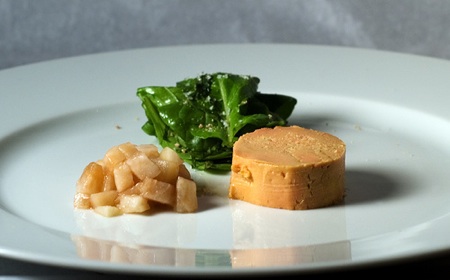Of all the ills that animal rights groups see in the culinary world, none has taken such a public or high-profile hit as foie gras. Since the rich, savory product derives from the liver of a duck or goose that has been fattened through the force-feeding or otherwise high-volume feeding of corn, some claim that its production is particularly inhumane. Foie gras has therefore become something of a flashpoint for animal rights advocates. Many others, including many within the culinary world, would cite factory farming or other incidents of animal mistreatment as far more dire offenses; nonetheless, the decadent foie gras remains a perpetual target. Differing opinions on the matter emerged clearly when the Chicago City Council voted to ban foie gras sales altogether—and, after outcry from the culinary community, several restaurant foie gras giveaways, and multiple lawsuits, the law was repealed less than two years later.

In a new move appealing to culinary creativity, PETA announced their
Fine Faux Fois Gras Challenge—a competition for the creation of a vegetarian foie gras alternative. Appealing both to culinary tradition and humane animal treatment, the organization is calling for a viable yet “authentic” substitute on menus worldwide. PETA will offer $10,000 to the chef who can best replicate the flavor, feel, and texture of foie gras, and features it in his or her restaurant. While any technique or preparation is acceptable, the resulting “faux gras” must be completely vegetarian—meaning, according to
the official rules, no animal or animal-derived products whatsoever.
While appealing to French culinary tradition may seem a bit suspect—it’s hard to imagine that any foie gras aficionado would be content with a veggie alternative, any more than a Kobe beef enthusiast would settle for a Boca Burger—the challenge is certainly an opportunity for creative thinking, and a tidy prize, besides.
Photograph from ilmungo on Flickr